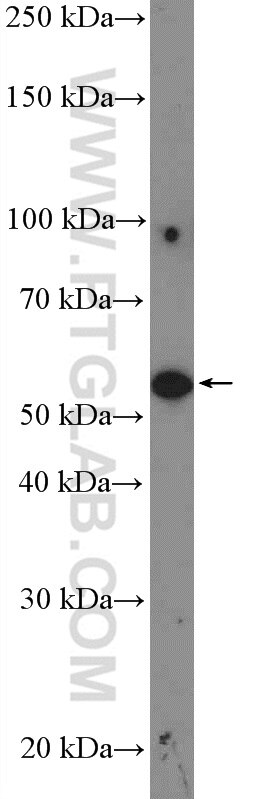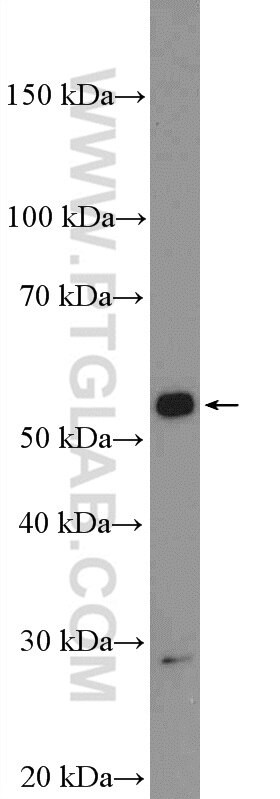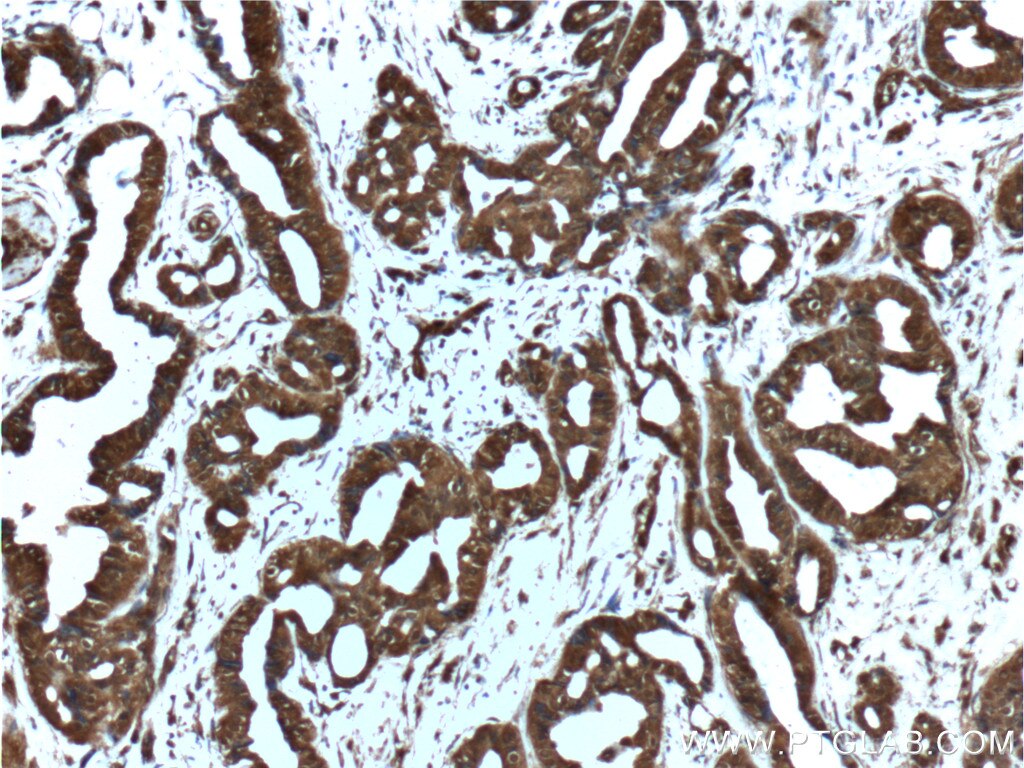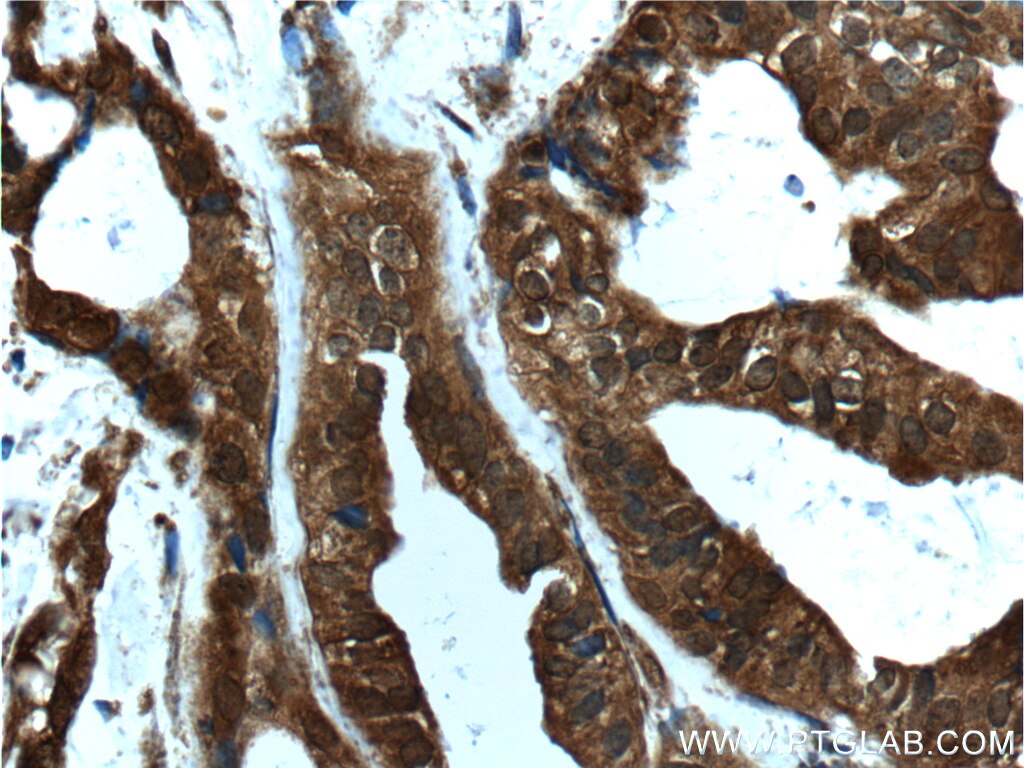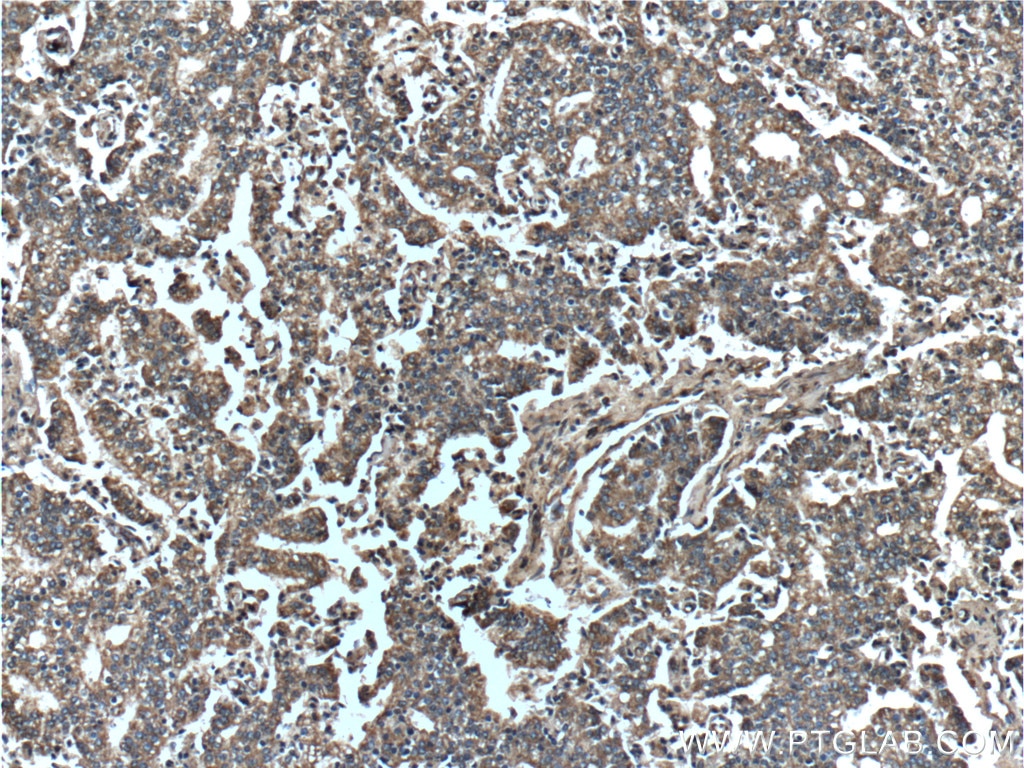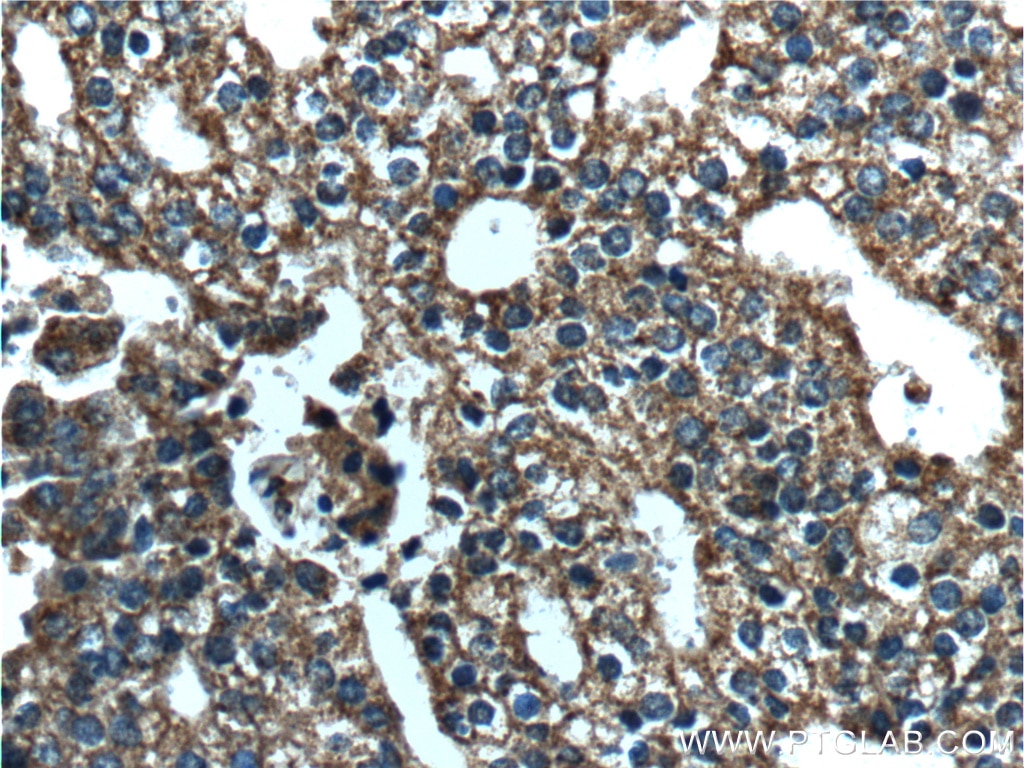AKT Polyklonaler Antikörper
AKT Polyklonal Antikörper für IHC, WB, ELISA
Wirt / Isotyp
Kaninchen / IgG
Getestete Reaktivität
human, Maus und mehr (1)
Anwendung
WB, IHC, ELISA
Konjugation
Unkonjugiert
Kat-Nr. : 55230-1-AP
Synonyme
Galerie der Validierungsdaten
Geprüfte Anwendungen
| Erfolgreiche Detektion in WB | HeLa-Zellen, A549-Zellen |
| Erfolgreiche Detektion in IHC | humanes Mammakarzinomgewebe, humanes Prostatakarzinomgewebe Hinweis: Antigendemaskierung mit TE-Puffer pH 9,0 empfohlen. (*) Wahlweise kann die Antigendemaskierung auch mit Citratpuffer pH 6,0 erfolgen. |
Empfohlene Verdünnung
| Anwendung | Verdünnung |
|---|---|
| Western Blot (WB) | WB : 1:500-1:1000 |
| Immunhistochemie (IHC) | IHC : 1:50-1:500 |
| It is recommended that this reagent should be titrated in each testing system to obtain optimal results. | |
| Sample-dependent, check data in validation data gallery | |
Veröffentlichte Anwendungen
| WB | See 4 publications below |
Produktinformation
55230-1-AP bindet in WB, IHC, ELISA AKT und zeigt Reaktivität mit human, Maus
| Getestete Reaktivität | human, Maus |
| In Publikationen genannte Reaktivität | human, Maus, Ratte |
| Wirt / Isotyp | Kaninchen / IgG |
| Klonalität | Polyklonal |
| Typ | Antikörper |
| Immunogen | Peptid |
| Vollständiger Name | v-akt murine thymoma viral oncogene homolog 1 |
| Berechnetes Molekulargewicht | 56 kDa |
| Beobachtetes Molekulargewicht | 56-62 kDa |
| GenBank-Zugangsnummer | NM_001014431 |
| Gene symbol | AKT1 |
| Gene ID (NCBI) | 207 |
| Konjugation | Unkonjugiert |
| Form | Liquid |
| Reinigungsmethode | Antigen-Affinitätsreinigung |
| Lagerungspuffer | PBS mit 0.02% Natriumazid und 50% Glycerin pH 7.3. |
| Lagerungsbedingungen | Bei -20℃ lagern. Aliquotieren ist bei -20oC Lagerung nicht notwendig. 20ul Größen enthalten 0,1% BSA. |
Hintergrundinformationen
AKT1, also named as PKB and RAC, belongs to the protein kinase superfamily, AGC Ser/Thr protein kinase family and RAC subfamily. It plays a role as a key modulator of the AKT-mTOR signaling pathway controlling the tempo of the process of newborn neurons integration during adult neurogenesis, including correct neuron positioning, dendritic development and synapse formation. AKT1 promotes glycogen synthesis by mediating the insulin-induced activation of glycogen synthase. It plays a role in glucose transport by mediating insulin-induced translocation of the GLUT4 glucose transporter to the cell surface. AKT1 mediates the antiapoptotic effects of IGF-I. (PMID:16139227)This antibody is specific to AKT1. It has no cross reaction to AKT2 and AKT3.
Protokolle
| Produktspezifische Protokolle | |
|---|---|
| WB protocol for AKT antibody 55230-1-AP | Protokoll herunterladen |
| IHC protocol for AKT antibody 55230-1-AP | Protokoll herunterladen |
| Standard-Protokolle | |
|---|---|
| Klicken Sie hier, um unsere Standardprotokolle anzuzeigen |
Publikationen
| Species | Application | Title |
|---|---|---|
Mol Med Rep Matrine inhibits the invasive and migratory properties of human hepatocellular carcinoma by regulating epithelial‑mesenchymal transition. | ||
J Immunol The Intracellular Interaction of Porcine β-Defensin 2 with VASH1 Alleviates Inflammation via Akt Signaling Pathway. | ||
Int J Mol Sci Extracellular Calcium-Induced Calcium Transient Regulating the Proliferation of Osteoblasts through Glycolysis Metabolism Pathways | ||
J Ethnopharmacol Shenqu xiaoshi oral solution enhances digestive function and stabilizes the gastrointestinal microbiota of juvenile rats with infantile anorexia |
Rezensionen
The reviews below have been submitted by verified Proteintech customers who received an incentive forproviding their feedback.
FH Tanusree (Verified Customer) (12-18-2019) | Product worked well in WB at 1:500 dilution and 1:100 in IF
|
FH Tanusree (Verified Customer) (08-14-2019) | The antibody works good in mouse brain tissue in western blotting.
|
